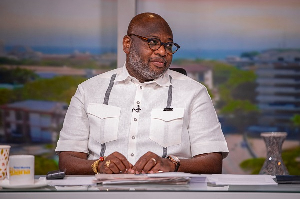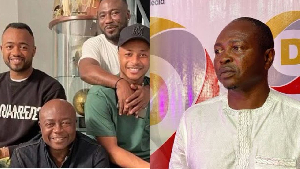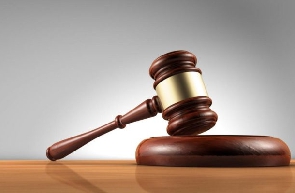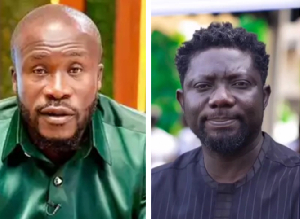The Chief Executive Officer for Ghana’s Public Sector Reforms, Kusi Boafo, recently returned from a working and familiarization tour of Rwanda and made some jaw dropping revelations on the landlocked East African country’s social, economic, infrastructural, technological development, and advancement. Boafo made an interesting comparison between Ghana and Rwanda.
The impressive achievement of Rwanda took centre stage in Mr Kusi Boafo’s analysis, with the explanation that the East African country could not have achieved much, but for the stern leadership qualities, passion, competence, vision and the astute directions of its ex-revolutionary President, Paul Kagame, and his team.
Paul Kagame, it will be recalled, organized and led an army of patriotic Rwandans against the genocide, which took place in that country in 1994. He became the elected president of Rwanda after this sordid and most difficult period in the history of Rwanda. Cumulatively, he has ruled Rwanda for 24 years (1994 to date).
In Ghana, former president, Jerry John Rawlings, also organized and led an army of so called revolutionaries to overthrow a democratically elected government of Dr Hilla Liman on 31st December 1981. Cumulatively, former President Jerry John Rawlings also stayed in power for nineteen years (1981 to 2000).
These two leaders emerged from the same military background and circumstances that triggered their action. They enjoyed similar popular support and sympathy domestically, and to some extent from their international allies, but sadly, results of their leadership are at variance, cognizant of what brought them into power.
Rwanda, a comparatively landlocked and resource scarce country has now become a shining example of what African leaders and countries ought to do, and this is worthy of emulation. Ghana on the other hand, finds itself in a quagmire, still struggling with developmental challenges, and neck deep in perceived corruption. The revolution led by former President Jerry John Rawlings was meant supposedly to truncate corruption and prepare Ghana for better things in the future. Unfortunately, Ghana is still struggling to find its way to development, which explains why Kusi Boafo will go to Rwanda to pick new ideas.
The irony and sad aspect of all these is that people who served under (PNDC and later NDC) and have had the most longest period of governance in Ghana’s history (35 years cumulatively), and were presented with the unique opportunity to transform Ghana, and make it a citadel of hope for the African continent but failed abysmally, are the same people who are now imploring all kinds of communist inferior tactics to thwart the efforts of the present government. How can too much talking bring significant change in the lives of the people, and raise living standards?
Comparing Rwanda under the leadership of President Paul Kagame with that of JJ Rawlings, the conclusion that comes to mind is that members of the PNDC and NDC must be ashamed of their stewardship of Ghana, shameful that Ghana has to learn and take inspiration from Rwanda and for that matter President Paul Kagame. In fact, it is always very painful and agonizing to hear or see members of the PNDC and NDC criticize, malign and blame others for Ghana’s state of affairs and it’s seemingly under development within the context of a developing economy. But this strange behaviour is not surprising because cowards and charlatans refuse to take blame and responsibilities for their actions and inactions. Yes, that is what they are, and that is what they do best.
The development of a country cannot come from a vacuum. It will take serious thinking, planning, well educated, trained and prepared leadership, supported by passionate and committed team of professionals, experts and technocrats to make it work. It cannot come from those who wake up every morning and think their inability to feed and cater for themselves and family are good credentials for usurping political authority and governance and/or to become leaders. Equally, peddling of lies, jealousy, envy, anger and hatred are also not among the benchmark leadership qualities, and motivating enough to take political authority and governance in every four years.
Pathetically, some ignorant and particularly dumb segment of NDC membership, and sympathisers, especially the youth whose future was jeopardised by these self-centred and self-seeking politicians, are still unable to do self-introspection, read in-between the lines, and ask themselves the obvious questions of what made president Paul Kagame succeeded in transforming Rwanda into its current state of development, and why former President Jerry John Rawlings failed abysmally to do same for Ghana since both came from similar backgrounds and circumstances.
Ghanaians should, therefore, be reminded that the experience of Rwanda, the performance of its President, Paul Kagame, and the showcase of its development as praised by Kusi Boafo should be a rallying point for a new paradigm for development in Ghana too. From the same thinking, some political and development watchers wonder why some Ghanaians will still support the NDC as a political party when Ghana’s current developmental challenges and deficiency can be comfortably placed at their doorsteps.
All is not lost on Ghana, but development can only happen when we begin to see and do the right things by not repeating the failures of the past.
“Yes We Can”.
Opinions of Wednesday, 8 August 2018
Columnist: Kakraba Emmanuel



















